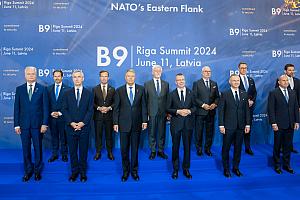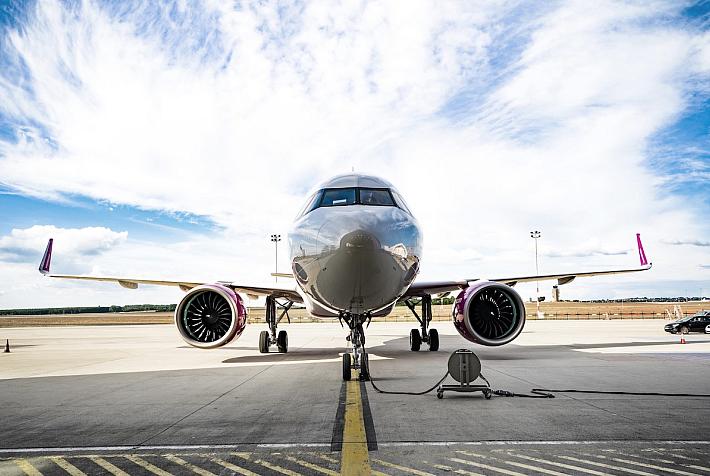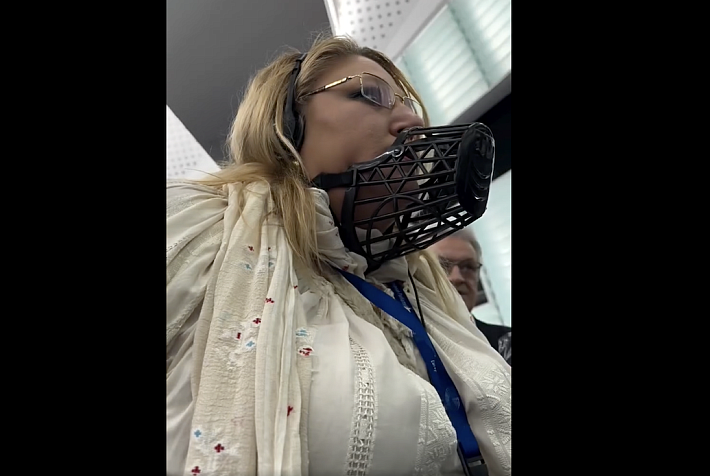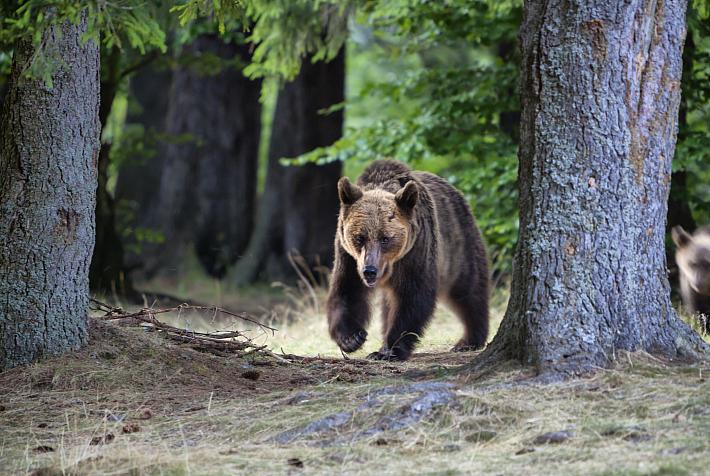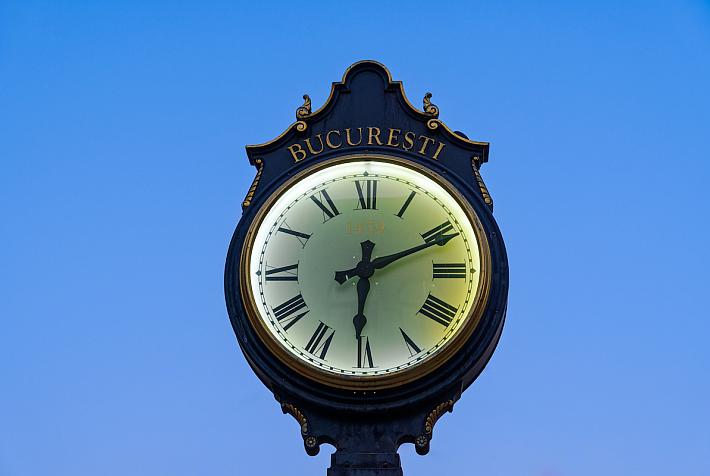Romanian president stresses importance of Black Sea for regional security during European Council talks
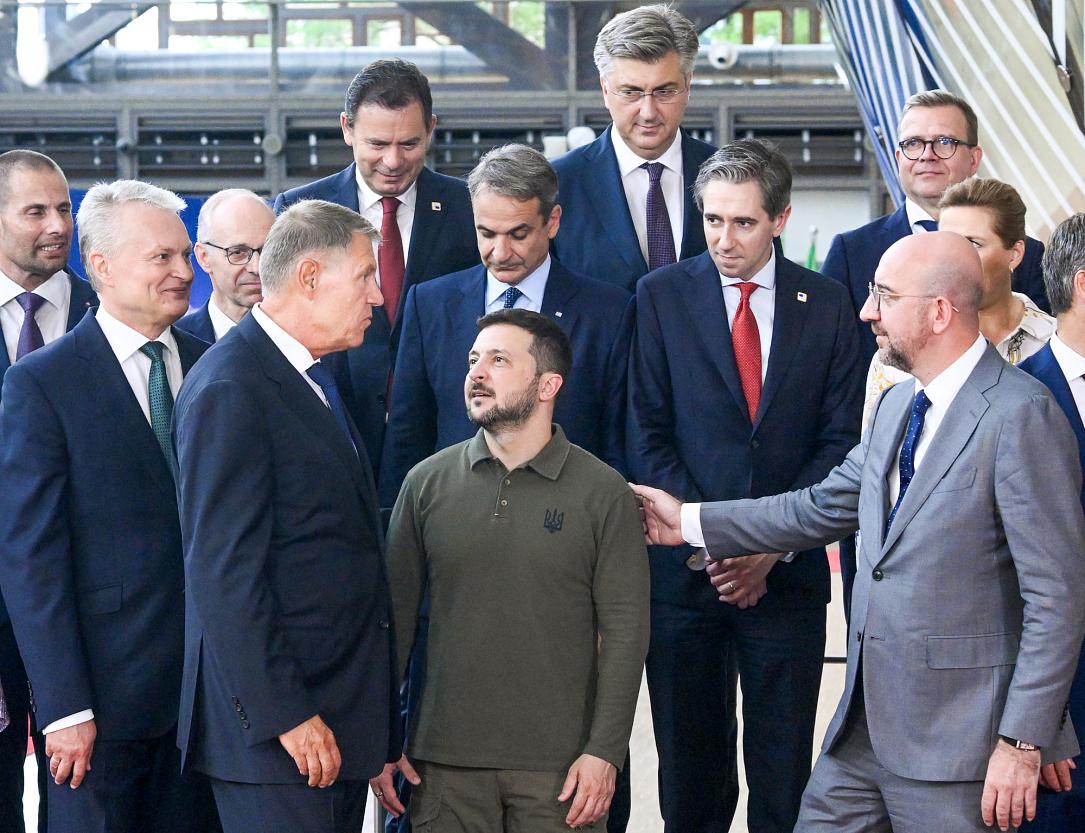
Romanian president Klaus Iohannis was present on Thursday, June 27, during discussions at the European Council, where he highlighted the importance of the Black Sea for regional security, as well as for the security of the entire European Union, especially in the current geopolitical context.
The main topics on the agenda were appointments for leadership positions within European institutions for the next institutional cycle, the adoption of the European Union's Strategic Agenda for 2024-2029, the situation in Ukraine, the Middle East, security and defense, competitiveness, and migration.
Regarding the appointments package for the next institutional cycle, the president of Romania emphasized the importance of respecting political and geographical balance at the leadership level of European institutions. In the end, former Portuguese prime minister António Costa was elected president of the European Council, Ursula von der Leyen was designated for a new term as president of the European Commission, and Kaja Kallas, the prime minister of Estonia, was designated as the High Representative of the European Union for Foreign Affairs and Security Policy.
During the discussion on the Strategic Agenda of the Union for 2024-2029, president Klaus Iohannis said that the document must reflect the shared commitment to continue efforts towards a stronger, more resilient, and more influential Union on the international stage, according to a press release from the presidency.
Additionally, the president of Romania stressed that the new Strategic Agenda must highlight the advancement of the enlargement policy, as well as the Union's unity regarding support for Ukraine and the importance of cooperation between the EU and NATO.
The Strategic Agenda adopted by the leaders sets priorities for guiding the Union's activities over the next five years on the following coordinates: promoting and protecting the Union's values internally and globally, ensuring coherent and influential external action, strengthening security and defense, protecting European citizens, advancing the enlargement policy and preparing the Union accordingly, consolidating a comprehensive approach to migration, stimulating European competitiveness, advancing the dual climate and digital transitions, and promoting an innovation-friendly environment and business development.
In the context of the discussion on the situation in Ukraine, president Klaus Iohannis insisted on the necessity of continuing support for Ukraine as long as necessary, at all levels, with particular emphasis on ensuring an adequate response to immediate military needs, especially concerning air defense.
He also voiced the need to continue and expand support for Moldova and welcomed the remarkable progress achieved by Moldova, including on the path to EU membership, despite the multiple challenges it faces from the Russian Federation.
EU leaders reiterated the continuation of support in all dimensions, particularly regarding military assistance and ways to coordinate with G7 partners on utilizing future revenues from immobilized Russian assets to guarantee and repay a loan for a new financial assistance package for Ukraine worth up to EUR 50 billion. Additionally, the leaders welcomed the adoption of the 14th package of sanctions against Russia and the organization of Intergovernmental Conferences to open EU accession negotiations with Ukraine and Moldova.
Regarding the situation in the Middle East, the president of Romania highlighted the importance of a balanced and principled EU position concerning the situation in the Middle East and preventing further escalation and extension in the region. I
n the conclusions adopted, the leaders emphasized the necessity of implementing the ceasefire proposal included in UN Security Council Resolution 2735, as well as respecting and implementing the Decisions of the International Court of Justice.
Additionally, the leaders reiterated the call for a ceasefire in Gaza, the release of all hostages, increased humanitarian assistance, support for the Palestinian Authority, and the EU's firm commitment to a lasting and sustainable peace based on the two-state solution.
The president of Romania also emphasized during the discussions the crucial importance of the Black Sea for regional security and insisted on a new strategic approach to the Black Sea at the European level. EU leaders set the objective for the future European Commission and the High Representative to prepare a Joint Communication regarding a European Union strategy for the Black Sea region, with the conclusions representing a result of Romania's sustained diplomatic efforts in recent months.
(Photo source: Presidency.ro)







